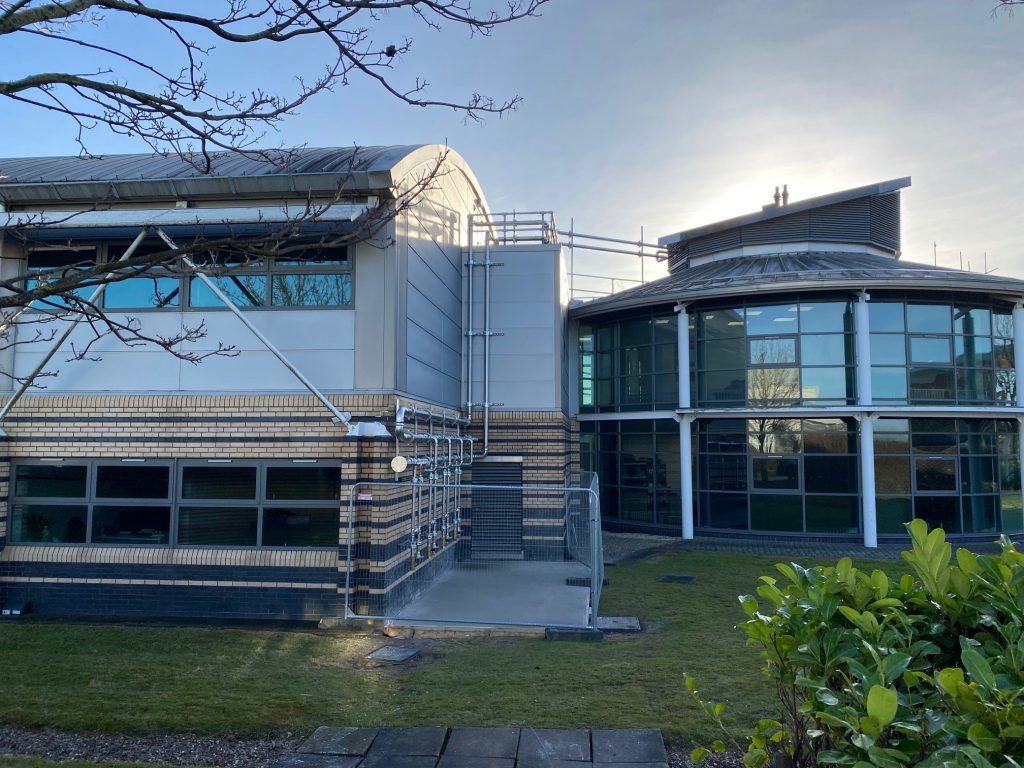Three North East Lincolnshire Council-owned buildings are undergoing energy-saving improvements as part of a £1.6-million project to help in the battle against climate change.
North East Lincolnshire Council aims to be carbon Net Zero by 2040 and recently agreed an action plan to reach the ambitious goal.
Adopted by the Council in December, the Carbon Roadmap sets out the Council’s aims to cut its carbon emissions to net zero by 2040 and for North East Lincolnshire to be carbon Net Zero by 2050.
Net Zero means reducing carbon emissions as much as possible and balancing the remainder through investing in programmes that increase carbon storage, such as planting more trees or artificial storage solutions.
The Council declared a Climate Emergency in September 2019. It has taken significant steps, both before and after the declaration was made, to increase energy efficiency and reduce its carbon emissions.
In the latest of these measures, energy-saving measures are underway at three council-owned buildings.
These include a range of upgrades to reduce energy consumption, such as better insulation and low-energy lighting, alongside innovations to generate green energy through devices such as solar panels and air source heat pumps.
North East Lincolnshire Council secured a £1.6-million grant from the Salix Public Sector Decarbonisation Scheme (PSDS) to carry out the works.
Salix provide capital for the public sector to reduce their energy costs by enabling the installation of modern, energy-efficient technologies and replacing dated inefficient technologies.
Buildings earmarked for enhancements include the Innovation Centre at Europarc, Beacon Academy and Waltham Library. The works are managed by the Council’s regeneration services partner EQUANS and are expected to cut the Council’s carbon emissions by 106 tonnes and support 41 direct jobs.
Cllr Phillip Jackson, Leader of the Council, said: “We’ve set an ambitious target to be a carbon-neutral council by 2040. Meeting this target is one of the biggest projects the Council has undertaken and is vital in mitigating the damage done by polluting carbon emissions.
“Reducing our energy consumption benefits the environment and lowers running costs, which helps keep council tax down.
“One of the biggest contributors to our carbon emissions is the energy we use to heat our buildings.
“We can reduce these emissions by increasing the energy-efficiency of our buildings, using our buildings to generate power and by switching to renewable sources of energy.
“The works we are carrying out now are a further step in our mission to becoming carbon Net Zero and follow other energy-efficiency improvements completed in recent years, such as converting our street lights to low-energy LED bulbs, upgrading our buildings and introducing more electric vehicles in our fleet.”
Building upgrades include:
Innovation Centre
- Air source heat pump
- LED Lighting upgrade
- Photovoltaic (PV) solar panels on roof to generate electricity from sunlight
Beacon Academy
- New roof
- New windows
- Improved insulation
- Low energy LED lighting
- PV solar panels on roof to generate electricity from sunlight
- Battery storage
- New efficient taps to reduce water consumption
- Air source heat pump
Waltham Library
- Air source heat pump
- PV solar panels on roof



